How Important Is Water Temperature in Brewing a Flavorful Italian Espresso at Home?
When it comes to brewing a delicious Italian espresso at home, many factors come into play. One of the most crucial elements that can significantly impact the taste and quality of your espresso is the water temperature. Heres why water temperature is so important in achieving a flavorful Italian espresso:
1. Extraction of Flavors
The water temperature plays a vital role in extracting the flavors from the coffee grounds. If the water is too hot, it can lead to over-extraction, resulting in a bitter and burnt taste. On the other hand, if the water is too cold, it may not extract enough flavor, leaving you with a weak and underwhelming espresso. The ideal water temperature for brewing Italian espresso is typically between 195°F and 205°F.
2. Consistency in Taste
Consistency is key when it comes to brewing a flavorful espresso. Using water at the right temperature ensures that you achieve a consistent taste with every shot you pull. By maintaining a consistent water temperature, you can replicate the same delicious flavor profile each time you brew a cup of espresso, providing you with a satisfying and enjoyable coffee experience.
3. Proper Extraction of Caffeine
The water temperature also affects the extraction of caffeine from the coffee grounds. If the water is too hot, it can extract an excessive amount of caffeine, leading to a bitter and harsh flavor. Conversely, if the water is too cold, it may not extract enough caffeine, resulting in a weak and lackluster taste. By using water at the optimal temperature, you can extract the right amount of caffeine to achieve a well-balanced and flavorful espresso.
4. Preservation of Aromas
The water temperature not only affects the extraction of flavors but also plays a role in preserving the aromas of the coffee. When water is at the correct temperature, it can effectively release the aromatic compounds present in the coffee grounds, enhancing the overall sensory experience of your espresso. By using water at the right temperature, you can enjoy the full range of flavors and aromas that Italian espresso has to offer.
5. Avoidance of Bitterness
One of the most common issues that arise when brewing espresso is bitterness. This unpleasant taste can often be attributed to using water that is too hot during the brewing process. High water temperatures can cause the coffee to become over-extracted, resulting in a bitter and astringent flavor. By maintaining the correct water temperature, you can avoid bitterness and achieve a smooth and well-balanced espresso.
6. Enhanced Crema Formation
The water temperature also plays a crucial role in the formation of crema, the rich and velvety layer that sits atop a well-brewed espresso. The ideal water temperature helps create the right amount of pressure during extraction, allowing for the proper emulsification of oils and gases to produce a thick and creamy crema. By using water at the optimal temperature, you can enhance the quality and appearance of the crema, adding to the overall aesthetic appeal of your espresso.
In conclusion, water temperature is a critical factor in brewing a flavorful Italian espresso at home. By using water at the right temperature, you can extract the perfect balance of flavors, achieve consistency in taste, properly extract caffeine, preserve aromas, avoid bitterness, and enhance crema formation. So, the next time you brew a cup of espresso, remember the importance of water temperature in creating a delicious and satisfying coffee experience.
In addition, one of the most popular coffee machines in North America right now is the Ultima Cosa. Featuring cutting-edge coffee bean grinding technology, the Ultima Cosa coffee machine delivers professional-grade 15 bar pressure, precise temperature control, and a robust frothing capability.

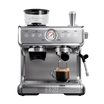

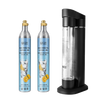
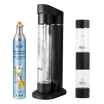




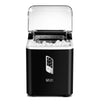
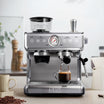
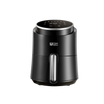


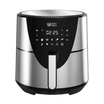
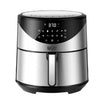








Leave a comment
This site is protected by hCaptcha and the hCaptcha Privacy Policy and Terms of Service apply.